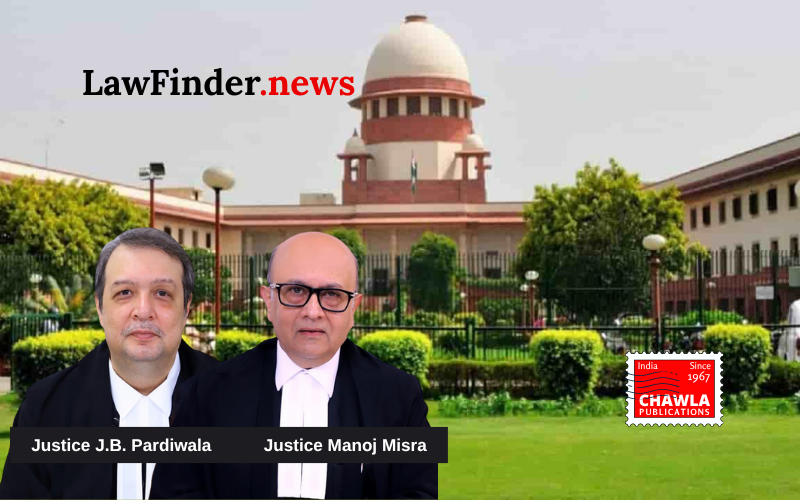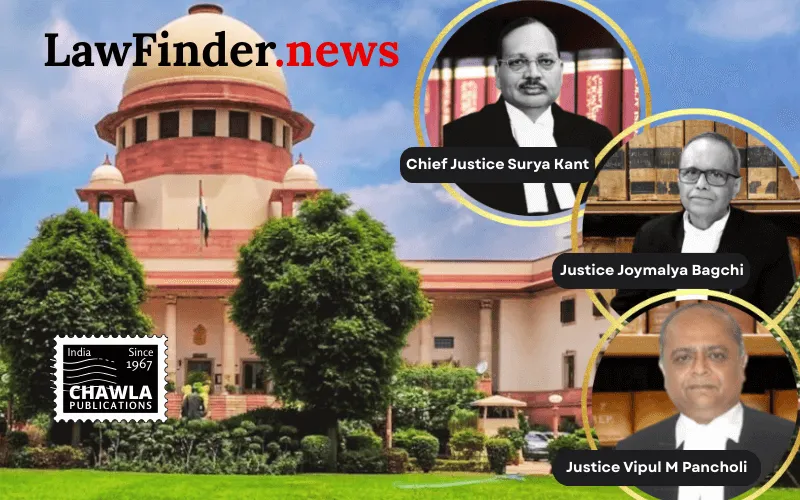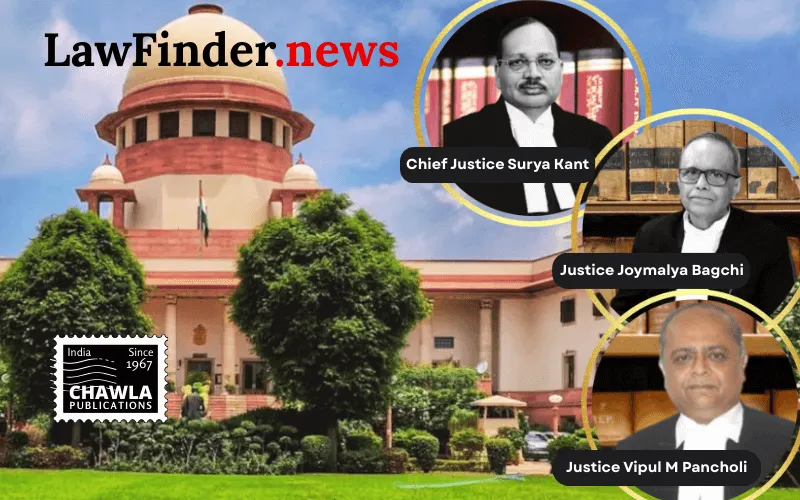Apex Court invalidates FIR No. 224/2022 and others for procedural and substantive infirmities, reiterating limits on who can lodge complaints under the unamended Section 4 of the U.P. Conversion Act and condemns misuse of criminal law for harassment.
In a landmark judgment delivered on October 17, 2025, a Constitution Bench of the Supreme Court of India, comprising Justices J.B. Pardiwala and Manoj Misra, quashed several First Information Reports (FIRs) registered under the Uttar Pradesh Prohibition of Unlawful Conversion of Religion Act, 2021 (“U.P. Conversion Act”) and related provisions of the Indian Penal Code (IPC). The batch of matters arose from multiple FIRs lodged in Fatehpur, Uttar Pradesh, concerning alleged unlawful religious conversions, including mass conversion events.
The judgment primarily addressed the validity of FIR No. 224/2022, registered on April 15, 2022, based on a complaint by a person not competent under the then unamended Section 4 of the U.P. Conversion Act to file such an FIR. The Supreme Court held that Section 4 circumscribed the locus standi to lodge FIRs for offences under the Act, restricting it to “any aggrieved person” or their close relatives by blood, marriage, or adoption. Since FIR No. 224/2022 was lodged by an unrelated third party, the Court found the FIR to suffer from an incurable legal defect and quashed it along with all consequential proceedings.
Further, the Court quashed FIR Nos. 54/2023, 55/2023, and 60/2023, which related to the same incident of alleged mass conversion on April 14, 2022, at the Evangelical Church of India, Fatehpur. The Court underscored the principle laid down in T.T. Antony v. State of Kerala (2001), prohibiting registration of multiple FIRs for the same incident, except where a counter-complaint or distinct offences are involved. Notably, FIR Nos. 55 and 60 were quashed as they were mere cyclostyled repetitions of FIR No. 54. The Court also scrutinized the material collected during investigation, highlighting inconsistencies and mechanical, identically drafted affidavits by complainants, undermining the credibility of the prosecution’s case.
The Court entertained writ petitions filed under Article 32 of the Constitution seeking quashing of FIR Nos. 224/2022 and 47/2023, despite the general practice of approaching High Courts first. It held that in extraordinary circumstances where fundamental rights are implicated, the Supreme Court’s writ jurisdiction extends to quashing criminal proceedings. FIR No. 47/2023, pertaining to an alleged conversion on December 25, 2021, was also quashed due to similar concerns about the credibility of investigation and delay in registration.
On FIR No. 538/2023, concerning allegations of attempted murder and extortion along with unlawful conversion, the Court found no valid offence under the U.P. Conversion Act but noted that the allegations under IPC Sections 307, 386, and 504 required further examination. This FIR was de-tagged for separate hearing after all relevant records are placed before the Court.
The judgment reaffirmed several key legal principles governing quashing of criminal proceedings, including:
- - The High Courts and Supreme Court have inherent powers under Section 482 of the Cr.P.C. and Articles 226 and 32 of the Constitution to quash FIRs to prevent abuse of process or miscarriage of justice.
- - The filing of a chargesheet does not preclude the quashing of FIRs or proceedings if no prima facie case is made out.
- - Only one FIR is permissible per cognizable offence or incident. Subsequent FIRs on the same facts are to be treated as statements under Section 162 Cr.P.C., not fresh FIRs.
- - The unamended Section 4 of the U.P. Conversion Act restricts the category of persons competent to initiate prosecution, reflecting the sensitive constitutional guarantee of freedom of religion and privacy.
- - The Court underscored the constitutional protections of religious freedom under Articles 21 and 25, including the rights to profess, practice, propagate, and change religion freely, within limits of public order and morality.
This judgment sends a strong message against frivolous or vexatious criminal litigation aimed at harassment under the guise of protecting religious sentiments. It also highlights the need to balance societal interests with individual dignity, autonomy, and fundamental rights in matters involving faith and conversion.
The Court expressed appreciation for the extensive submissions by all counsel and emphasized that its observations on the U.P. Conversion Act do not constitute a decision on the constitutional validity of the Act, which is pending in other proceedings.
Statutory provision(s): Indian Penal Code Sections 153-A, 306, 307, 386, 420, 467, 468, 471, 504, 506, 120-B; Uttar Pradesh Prohibition of Unlawful Conversion of Religion Act, 2021 Sections 3, 4 (unamended), 5(1), 7; Code of Criminal Procedure Section 154, 161, 173(2), 482; Articles 21, 25, 32, 136, 142 of the Constitution of India; Bharatiya Nagarik Suraksha Sanhita, 2023 (referenced in amended Section 4 of U.P. Conversion Act).
Rajendra Bihari Lal v. State of Uttar Pradesh, (SC) : Law Finder Doc Id # 2796052




